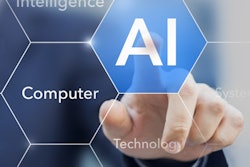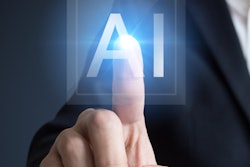Dear Artificial Intelligence Insider,
Differentiation of thyroid nodules on ultrasound is an important but often challenging task for radiologists. The combination of radiomics and deep learning may be able to help, according to new research.
In a study published online this week in the European Journal of Radiology, a Chinese group detailed how its algorithm achieved excellent performance for differentiating benign and malignant thyroid nodules.
Meanwhile, several efforts are underway around the world to develop and deploy artificial intelligence (AI) in the fight against the COVID-19 pandemic. A European campaign led by European Society of Medical Imaging Informatics President Dr. Erik Ranschaert, PhD, and fellow radiologist Dr. Laurens Topff from the Netherlands Cancer Institute in Amsterdam is working to develop a deep-learning model for automated detection of abnormalities on chest CT and quantifying lung involvement. Around 30 partners have already expressed their willingness to participate in the project.
The U.K. Royal College of Radiologists has also developed guidelines for implementing AI during the pandemic.
In other AI news, the International Society of Radiographers and Radiological Technologists and the European Federation of Radiographer Societies have released a joint statement advocating an active role for radiographers and radiological technologists in the development and implementation of AI in radiology.
Researchers from Switzerland have reported that an algorithm can accurately reconstruct 4D flow MRI exams in seconds, offering the potential for assessment of cardiac blood flow while the patient is still in the scanner. In addition, a multinational team of researchers has found that a computer-aided detection software application based on deep-learning technology can detect tuberculosis on chest radiographs at comparable levels to human experts.
Also, an AI model can provide fully automated quantification of emphysema, demonstrating promise as a tool for image-based diagnosis and quantification of the disease's severity. On a sobering note, many research studies that claim AI algorithms are better than or equal to human experts for interpreting medical images are of poor quality and exaggerate claims -- fueling hype and potentially even endangering patients, according to a group of researchers from the U.K. and the U.S.
Is there a story you'd like to see covered in the Artificial Intelligence Community? Please feel free to drop me a line.



















